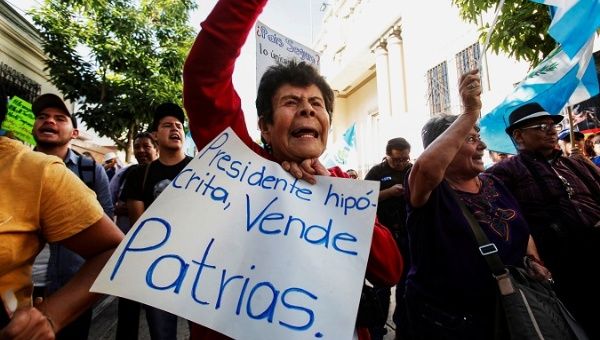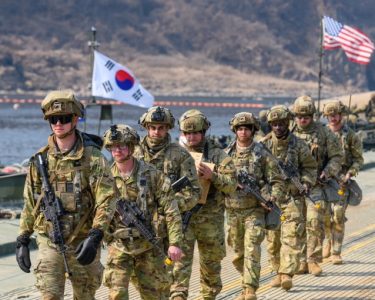
GUATEMALA CITY, July 31 (NNN-TELESUR) — Guatemala’s Human Rights Prosecutor Jordan Rodas filed an urgent appeal to the Constitutional Court to curb the “Safe Third Country” (STC) agreement signed by President Jimmy Morales administration in Washington on July 26.
“The agreement contradicts not only the Guatemalan Constitution but also the Vienna Convention,” Rodas said and explained that article 52 of this convention states that any international “deal whose conclusion has been obtained under threat is void.”
Although the Washington agreement does not include the term “safe third country,” the deal signed by Interior Minister Enrique Degenhart before President Donald Trump makes Guatemala a territory to which the U.S. can send migrants where they would wait until U.S. authorities process their asylum applications.
Rodas also demanded that the Constitutional Court dismiss Degenhart and prosecute him because he did not respect judicial protection whose purpose was to prevent the Guatemalan government from signing an immigration agreement without prior knowledge of the Congress.
According to the Guatemalan ombudsman, the Morales-Trump agreement “is a fallacy and unreal” and warned that if it is carried out, “there could be a great collapse, more precariousness and a boomerang effect as it would cause more migration [of Guatemalans] to the U.S.”
On Monday, Rodas also filed an appeal to the Constitutional Court aimed at guaranteeing the right to demonstrate for social movements which are protesting the Washington agreement.
In order to become a safe third country, Guatemala would have to have minimum conditions to shelter people who seek refuge in the U.S., which is something that the Central American country does not have.
“If we cannot provide security, nutrition or education to Guatemalans, how are we going to give people of other nationalities those conditions?” Rodas asked.
The argument that Guatemala should not become a safe third country seems to be supported by the same official statistics.
Currently, Guatemala has one of the highest rates of infant mortality in the continent, with 24.8 child deaths per 1,000 live births. It also has one of the highest rates of chronic childhood malnutrition in the world as 46.9 children under the five years suffer from it.
Seen from an economic viewpoint, the country is not a good condition either. About 65.8 percent of its working-age population survives by performing poorly paid activities at the informal economy, a figure which rises up to 80.3 percent among the Indigenous Mayan population, as reported by Sicurenzza Internazionale.
President Morales and his Cabinet “cheated us,” Rodas said and requested that any important foreign policy decision should be taken by the person who gets elected as president on Aug 11. — NNN-TELESUR




